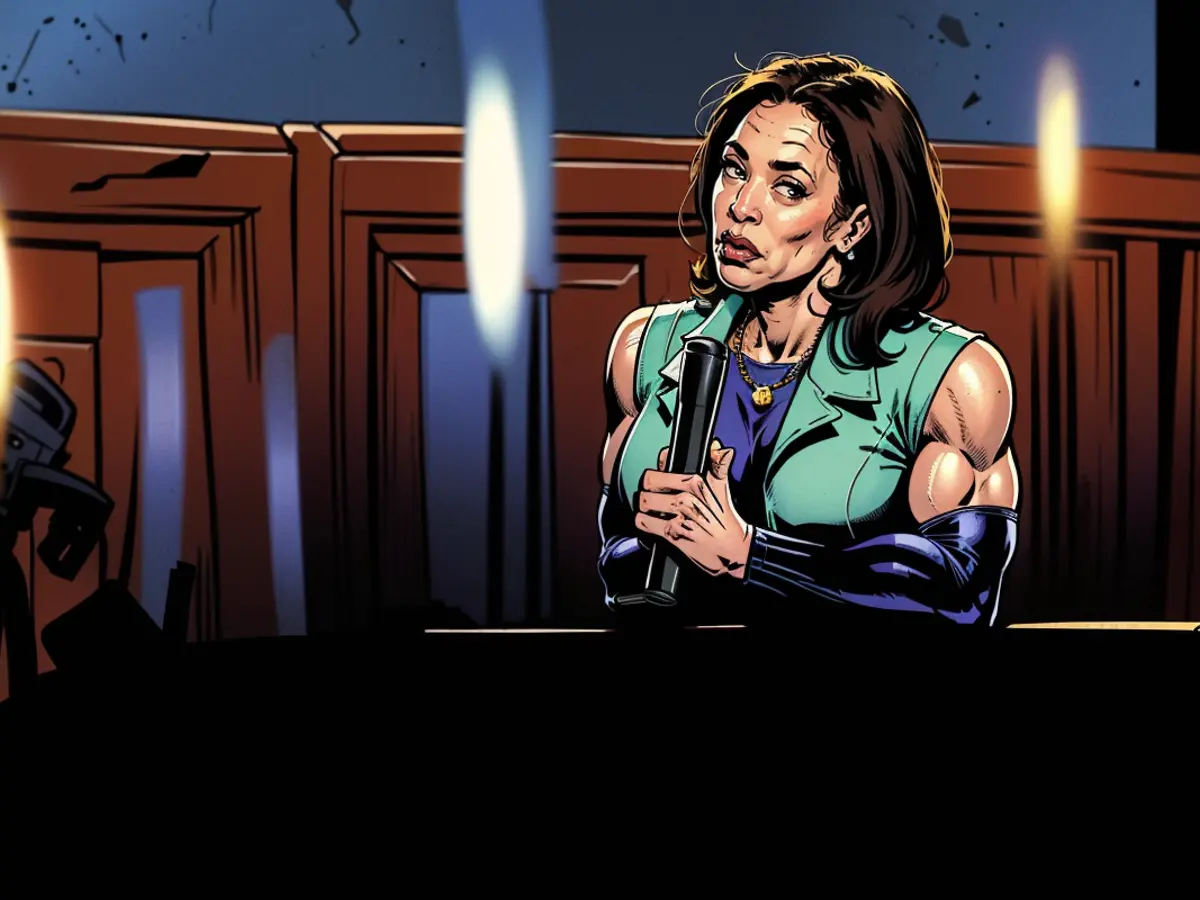Harris tackled the powerful financial institutions, or 'big banks', following the foreclosure predicament.
The story is frequently brought up in TV advertisements and at various campaign events. During her speech at the Democratic National Convention in August, she also talked about it.
As the Attorney General of California, she took on the large banking institutions. She managed to secure $20 billion for families who were facing foreclosure and helped pass the Homeowner Bill of Rights, one of the first of its kind in the nation.
The narrative often includes how she negotiated a multistate mortgage settlement with five major banks in the country. This agreement provided financial aid to homeowners and established new norms for lenders. She also obtained a separate agreement with three banks, ensuring specific relief for homeowners in California. Both deals were finalized in 2012.
Throughout her political journey, she has consistently recounted this experience. Her book "The Truths We Hold," published in 2019, contains a chapter detailing her role in the settlement negotiations. This story also comes up when she discusses her relationship with Beau Biden, who was then the Attorney General of Delaware and also signed onto the national mortgage settlement.
The mortgage settlement served as a turning point in Harris's career
She assumed the role of Attorney General of California in 2011 when numerous states and several federal agencies were already investigating deceptive lending practices such as robo-signing, where banks would sign foreclosure-related documents without verifying the accuracy of the information.
At that time, the US housing market was in a state of chaos, and Americans were defaulting on their mortgages and falling victim to foreclosure at an alarming rate.
In the fall of 2011, she decided to withdraw from the negotiations, claiming that the proposed settlement was not sufficient for California homeowners.
In her book, she describes how she decided to directly communicate with JPMorgan Chase CEO Jamie Dimon regarding the negotiations, resulting in a heated conversation. The national agreement was finalized just a few weeks later.
This episode significantly impacted Harris's career. A press release issued by her office at the time stated that before she left the negotiations, California was expected to receive only $4 billion from the national settlement.
“She did hold out, and she improved the settlement for California homeowners,” said Ira Rheingold, Executive Director of the National Association of Consumer Advocates.
Mortgage relief for homeowners
The national settlement provided mortgage relief to homeowners in various forms, including principal reductions, interest rate reductions, and loan modifications. Direct payments were also made to individuals who had lost their homes to foreclosure due to fraudulent practices.
Harris appointed a monitor, now-Representative Katie Porter, to ensure that the banks adhered to the agreed terms.
The California agreement delivered approximately $9.2 billion in relief to over 84,000 homeowners by reducing the principal on their first or second mortgages, according to Porter's 2013 report.
$9.2 billion was also set aside for short sales, which allow homeowners to sell their property for less than its market value, provided the lender agrees to waive the deficit.
While this arrangement allowed many families to keep their homes, there were certain shortcomings.
“Less principal reduction was carried out than what should have been. That's largely due to how this agreement was structured,” Rheingold said.
New standards for mortgage lenders
The agreement also introduced new servicing standards for mortgage lenders that were not prevalent on a national level at the time.
“From my perspective, the real value of the settlement lay in introducing the first broad set of servicing standards for big banks and lenders,” said Lisa Sitkin, Supervising Attorney at the National Housing Law Project.
Sitkin explained that in the past, the foreclosure process felt like the Wild West due to the lack of rules protecting borrowers.
The settlement put restrictions on a practice known as 'dual tracking,' where a mortgage servicer continues the foreclosure process while a struggling borrower applies for a loan modification.
The new guidelines served as a precursor to federal regulations later enforced by the Consumer Financial Protection Bureau.
The standards also played a significant role in paving the way for the California state legislature to pass a Homeowner Bill of Rights, providing additional protection to homeowners.
“It was only when then-AG Harris used her office's influence that we were able to pass the Homeowner Bill of Rights in California,” Sitkin said, who, along with other advocates, had been pushing for state regulations for years.
In her political career, Kamala Harris often highlights her role in securing mortgage relief for homeowners through a national settlement. This settlement, finalized in 2012, provided financial aid in various forms to homeowners facing foreclosure.
The mortgage settlement not only provided relief to homeowners but also introduced new servicing standards for mortgage lenders, marking a shift from the previous lack of regulation in the foreclosure process.








